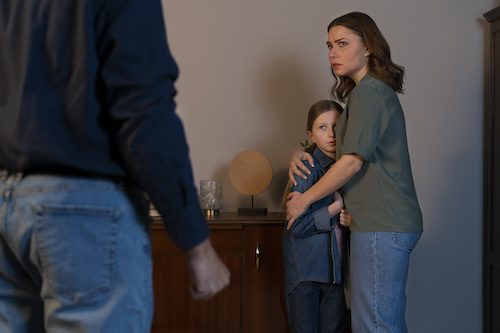Why Criticizing Your Partner Happens
As a relationship coach, I’ve seen this dynamic play out in countless relationships, including my own at times. Criticism—a sharp word, a sideways comment, a disapproving look—can sneak into even the most loving partnerships.
For years, I’ve pondered this behavior in myself and in the lives of those I work with. Why do we criticize the very person we’ve chosen to love and cherish? Why do we find fault where we once saw perfection?
In exploring this question, I’ve been deeply inspired by the insights of Peter Crone, often called “The Mind Architect.” His work highlights how our unmet needs and unconscious patterns drive much of our behavior, including criticism.
Reflecting on his wisdom has deepened my understanding of why we criticize and how we can transform this habit into a force for connection rather than division.
Criticism Comes From Fear
When I reflect on my own experiences and those of my clients, I see a common thread: criticism often stems from fear. Fear of being vulnerable, fear of not being loved, or even fear of losing the relationship can drive us to lash out.
For instance, there was a time in my marriage when I found myself overly critical of my husband’s habits. I’d nitpick about how he loaded the dishwasher or folded the laundry. It seemed petty, and I knew it wasn’t about the dishes or the towels, but I couldn’t stop.
When I finally dug deep, I realized my criticism wasn’t about his actions—it was about my fears of not being heard or valued. My comments were a misguided attempt to regain a sense of control.
The Hidden Roots of Criticism
Criticism can also be a learned behavior. Many of us grow up in environments where criticism was the norm, whether from parents, teachers, or peers. We internalize the idea that pointing out flaws is the best way to inspire change or achieve our goals.
However, in adult relationships, criticism often achieves the opposite—it creates distance rather than connection.
Criticism arises when we resist reality as it is. When we criticize our partner, we’re essentially saying, “You should be different from who you are right now.”
This resistance to the present moment fuels frustration and disconnection. By learning to accept our partner as they are, we can begin to dissolve the impulse to criticize.
Why Criticizing Your Partner Masks Emotional Pain
I’ve noticed that criticism often masks unmet emotional needs. When I’ve criticized my partner, it’s rarely been about the surface issue.
Instead, it’s been a signal of deeper feelings:
- Loneliness: If I felt disconnected, I’d critique his time management.
- Insecurity: If I doubted my worth, I’d nitpick his compliments, as though they weren’t enough.
- Frustration: If I felt overwhelmed, I’d lash out at small things, like a sock left on the floor.
Our criticism of our partner often mirrors the lens through which we view ourselves and the world.
If we feel inadequate or unloved, we project that pain outward, finding fault in others. This awareness can be transformative—it shifts the focus from trying to fix others to healing the parts of ourselves that feel broken.
How Criticizing Your Partner Affects Your Relationship
One or two may not seem like a big deal, but over time, they add up and cause real pain. A critical comment can make your partner feel unloved, unworthy, or unappreciated.
I’ve seen couples who’ve built up walls of defensiveness and silence because they’ve lost the safety to be themselves.
Every human being longs to feel safe, seen, and accepted.
When we criticize, we unintentionally chip away at our partner’s sense of safety. Over time, this erodes trust and intimacy, creating a dynamic where both partners feel unseen and misunderstood.
Breaking the Cycle of Criticism
So, how do we break free from this cycle? Over the years, I’ve discovered a few key strategies that have been game-changers for me and my clients:
- Pause and Reflect Before you criticize, ask yourself: “What am I feeling?” Often, the urge to criticize is a reaction to deeper emotions like fear, frustration, or sadness. Taking a moment to reflect can help you respond more intentionally.
- Choose Curiosity Over Judgment When I’m tempted to criticize, I try to approach my partner with curiosity instead. Instead of saying, “Why don’t you ever listen to me?” I might ask, “Is something on your mind? You seem distracted.” This opens the door for connection rather than conflict.
- Express Needs Directly . One of the biggest lessons I’ve learned is the importance of expressing needs without blame. Instead of saying, “You never help around the house,” try, “I feel overwhelmed with chores. Can we work out a plan together?” This shifts the focus from fault to partnership.
- Practice Radical Acceptance . Acceptance doesn’t mean condoning behavior that harms us. It means seeing our partner for who they are right now, without wishing they were someone else. This doesn’t just apply to our partner—it applies to ourselves, too.
Work on Self-Compassion Criticism of others often mirrors criticism of ourselves. When I’m kind to myself—when I accept my imperfections—it’s easier to extend that same kindness to my partner.
One way to stop criticizing your partner is to understand the emotional pain beneath the surface.
A Path Toward Healing
Criticism doesn’t have to be the death knell of a relationship. With awareness and effort, it can become an opportunity for growth and healing.
In my own life, I’ve seen how transforming criticism into understanding has deepened my connection with my partner. It’s not always easy—old habits die hard—but the rewards are worth it.
Relationships are not about fixing the other person but about freeing ourselves from the patterns and beliefs that cause us to suffer. When we let go of the need to change or control our partner, we create space for genuine connection and intimacy to grow.
A Closing Thought
If you’ve found yourself criticizing your partner, I want you to know this: you’re not a bad person, and your relationship isn’t doomed.
Criticism is a signal, not a sentence. It’s a sign that something deeper needs your attention—whether it’s an unmet need, an unhealed wound, or a fear waiting to be faced.
When we shift our perspective on our partner and ourselves, we create the freedom to love and be loved without conditions.
Relationships thrive not on perfection but on the courage to show up, flaws and all, and choose each other every day.
Let’s commit to this together. Let’s be the kind of partners who lift each other, even in our moments of doubt and fear. Because love isn’t about avoiding mistakes—it’s about growing through them.
Ready to shift from criticism to connection in your relationship? Schedule your free clarity call today and begin a new path toward emotional safety and understanding.












Recent Comments